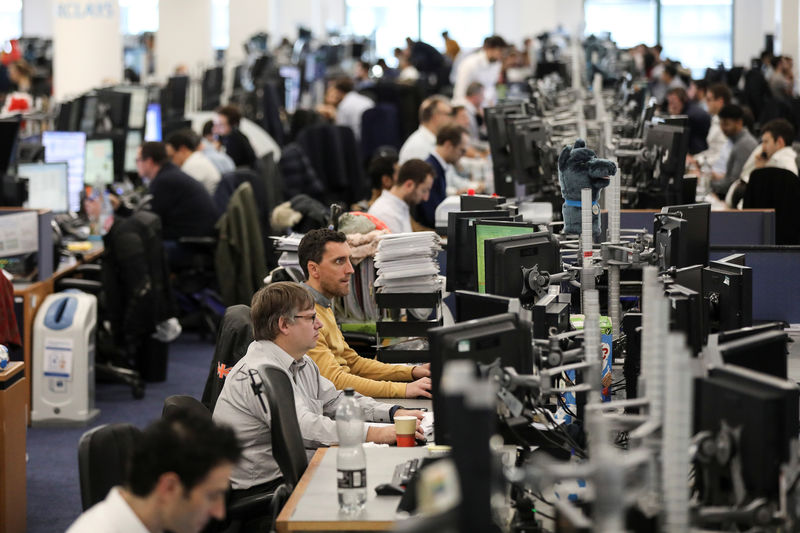(Reuters) - London's main bourse held steady on Wednesday following three sessions in the red as oil majors and miners offered support ahead of testimony from the U.S. Federal Reserve Chairman, while a profit warning from PageGroup knocked the recruitment sector.
The FTSE 100 index (FTSE) shed initial losses to be up 0.1% by 0750 GMT. The midcap index (FTMC) was 0.1% lower, weighed down by weakness in the local currency ahead of UK GDP data.
Shell (L:RDSa) and BP (L:BP) provided the biggest boost as crude prices firmed following industry data showing U.S. stockpiles fell far more than expected. Miners (FTNMX1770) added 0.8% as nickel prices scaled a 3-month high on signs of improvement in U.S.-China trade talks.
The recent weakness in UK markets has been triggered by waning hopes of more accommodative policies from the Fed, and markets are keenly awaiting any hints on the magnitude of interest rate cuts from Fed Chair Jerome Powell's testimony later on Wednesday.
Recruitment firm PageGroup (L:PAGE) skidded 14% - its biggest one-day fall in three years - after it said it expects full-year earnings to be at the lower end of market expectations due to slower hiring caused by Brexit uncertainties.
That knocked shares in rivals Hays (L:HAYS) and Robert Walters (L:RWA) by 6.4% and 1.7%, respectively.
The FTSE 250 index, whose constituents earn a major chunk of their earnings in sterling, was also pressured as the pound touched a six-month low against the euro ahead of the economic data and as no-deal Brexit risks persisted.
"Though the monthly UK GDP reading is expected to bounce... it is hard to picture sterling taking too much comfort from that given the dismal, recession-suggesting state of last week’s PMIs," Spreadex analyst Connor Campell said.
Pub operator J D Wetherspoon (L:JDW) added 3% as it reported higher comparable sales for the 10 weeks to July 7 and kept its full-year expectations unchanged.

Among small-caps, fashion group Superdry (L:SDRY) shed 3% after earlier falling as much as 10% as a 130 million pound charge for poorly performing stores pushed it into an annual loss.